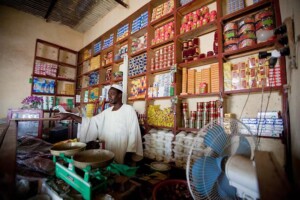Critics lambast Sudan port renewal plans
The economic expert and University of Khartoum lecturer, Prof Ibrahim Onur, has stressed the difficulty of implementing the matrix announced by Gen Mohamed ‘Hemeti’ Dagalo, Vice-President of Sudan’s Sovereignty Council.
 Gen Mohamed ‘Hemeti’ Dagalo, Vice-President of Sudan’s Sovereignty Council, speaks during a five-day visit to Red Sea state (Photo: SUNA)
Gen Mohamed ‘Hemeti’ Dagalo, Vice-President of Sudan’s Sovereignty Council, speaks during a five-day visit to Red Sea state (Photo: SUNA)
Economic expert and University of Khartoum lecturer Prof Ibrahim Onur has stressed the difficulty of implementing the matrix announced by Gen Mohamed ‘Hemeti’ Dagalo, Vice-President of Sudan’s Sovereignty Council.
In an interview with Radio Dabanga, Prof Onur said the lack of sufficient financial resources, in light of Sudan’s economic downturn, would “impede the success of developing Port Sudan’s ports”. The professor went on to add that quantity of machinery needed to address the port’s shortcomings, required a huge injection of “financial expenditure and this would only be possible if the ports were privatised”.
He also called for the development of the port of Suakin in Red Sea state, saying that it was the only port suitable for development, due to its capability in accommodating foreign trade. Unlike the Port Sudan port, that isn’t suitable for foreign trade, “due to limited water depth, narrow entrances, and lack of carrying capacity”, he said.
In an interview with Radio Dabanga, Aboud Sherbini criticised efforts to establish due to urgent redevelopment needs of Port Sudan’s southern port. Sherbini criticised the Ministry of Finance’s handling of the ports, stating that the port’s machinery is “dilapidated and inoperable” and its “maintenance is not feasible”.
Matrix plans for Red Sea ports
Gen Mohamed ‘Hemeti’ Dagalo, Vice-President of Sudan’s Sovereignty Council, visited Red Sea state, to review “all the shortcomings in the Red Sea ports”, and announced a matrix had been developed to address the issues at the seaports. He also said that a time limit for the matrix will be set, besides specifying tasks and responsibilities, and the implementing organs.
Hemeti indicated that, during the visit, a memorandum of understanding was signed with the chambers of commerce of all the states of Sudan to develop, rehabilitate and improve the work of seaports.
The Vice-President of the Sovereignty Council stressed the importance of fighting corruption in the ports, noting that “acts of sabotage, disruption of machinery, and reduction of the exports were deliberately carried out”.
He stressed that the implementation of the decisions of this matrix will be permanently monitored, affirming the importance of sincerity in work, providing an appropriate work environment for the employees in the seaports, as well as combating injustice and discrimination in the container search, which causes great damage to a large part of clients.











 and then
and then